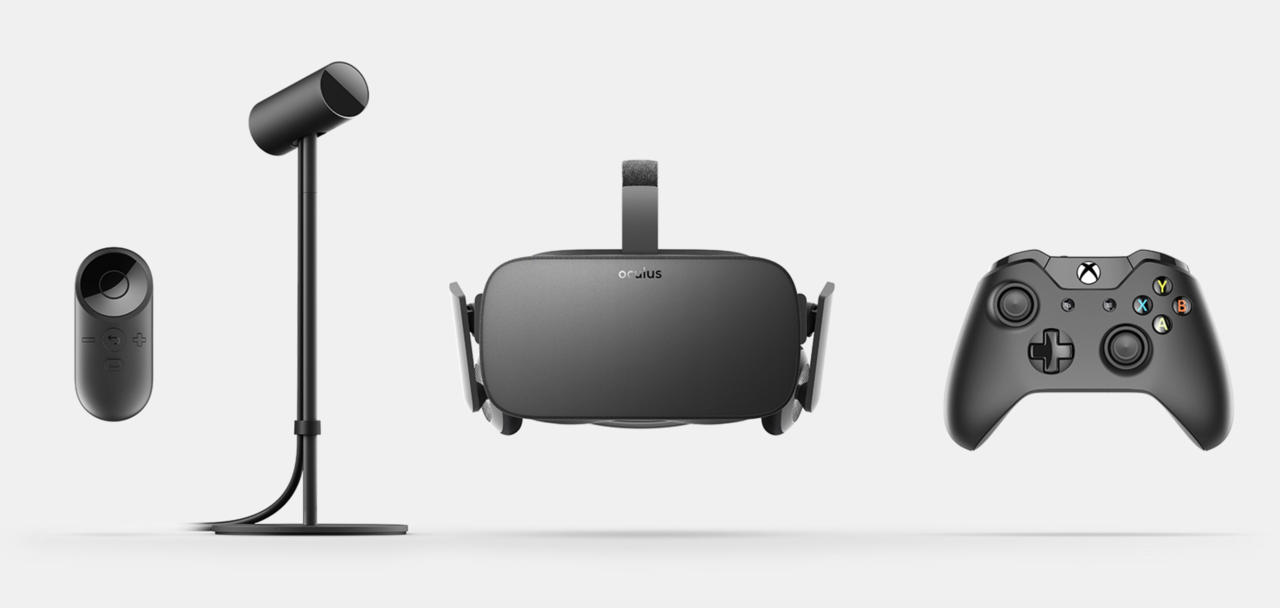ZeniMax Bashes Palmer Luckey, Claims Oculus Lied About His Accomplishments
In an update to the publisher's lawsuit, ZeniMax directly accuses Palmer Luckey and John Carmack of stealing information.
Update: An Oculus spokesperson provided a statement to GameSpot: "This complaint filed by ZeniMax is one-sided and conveys only ZeniMax's interpretation of the story. We continue to believe this case has no merit, and we will address all of ZeniMax's allegations in court."
Original Story:
Way back in 2014, Fallout publisher ZeniMax filed a lawsuit against Oculus VR alleging that Oculus founder Palmer Luckey had utilized stolen virtual reality technology to create the Rift VR headset. A filing last week revealed that the lawsuit had been amended earlier this year with much more pointed accusations: ZeniMax updated it to call out by name Oculus CTO John Carmack and CEO Brendan Iribe, adding much more specific allegations of intellectual property theft.
Essentially, what the lawsuit alleges is that a significant part of the tech that eventually became the Rift was already in development at ZeniMax when Luckey founded Oculus VR. Building on this, as reported by Game Informer, the lawsuit has been amended to levy detailed claims of theft against Carmack, Iribe, and Luckey. The suit argues that Carmack, who used to work for ZeniMax-owned id Software, knowingly took VR technology and information from the company right before he left for Oculus.

"Instead of complying with his contract, during his last days at ZeniMax, he copied thousands of documents from a computer at ZeniMax to a USB storage device," the lawsuit states. "He never returned those files or all copies of them after his employment with ZeniMax was terminated. In addition, after Carmack's employment with ZeniMax was terminated, he returned to ZeniMax's premises to take a customized tool for developing VR Technology belonging to ZeniMax that itself is part of ZeniMax's VR technology."
According to ZeniMax's claims, Iribe assisted with the IP theft by helping to construct the image of Luckey as a VR innovator and genius. But the publisher alleges that Luckey provided little to the VR project. The amended suit now argues: "Oculus, at Iribe’s direction, disseminated to the press the false and fanciful story that Luckey was the brilliant inventor of VR technology who had developed that technology in his parents' garage. In fact, that story was utterly and completely false: Luckey lacked the training, expertise, resources, or know-how to create commercially viable VR technology, his computer programming skills were rudimentary, and he relied on ZeniMax's computer program code and games to demonstrate the prototype Rift."
There are many more changes to the lawsuit, including the first direct accusations against Oculus parent company Facebook for assisting Oculus with IP theft. For example, ZeniMax alleges that at the time of Facebook's acquisition of Oculus, Oculus told the social media company that it had full ownership of all of Oculus's IP. But, ZeniMax claims, "At the time those representations were made--and at the time the acquisition transaction subsequently closed--those representations were false, Oculus, Luckey, Iribe, and Carmack knew them to be false, and Facebook knew or had reason to know that they were false."
Roblox - Netflix Nextworld Official Trailer Halo Infinite - Official "This is Halo" Extended Multiplayer Trailer Crow Country | Official Launch Trailer Master Detective Archives: RAIN CODE Plus - Official Announcement Trailer Learn To Move Like An Ape | Kingdom of the Planet of the Apes Animal Well - Official Launch Gameplay Trailer Street Fighter 6 - 8 Minutes of Akuma Gameplay (High-Level CPU) Animal Well GameSpot Review Vampire Survivors: Operation Guns | Launch Trailer | OUT NOW PAC-MAN Mega Tunnel Battle: Chomp Champs – Launch Trailer Historian Reacts To Manor Lords MultiVersus – Official The Joker Character Reveal Trailer | “Get a Load of Me”
Please enter your date of birth to view this video
By clicking 'enter', you agree to GameSpot's
Terms of Use and Privacy Policy
In addition, this clause points out that if Oculus misrepresented the nature of its acquisition, its shareholders would have to compensate Facebook for damages--thus, ZeniMax alleges, since Luckey and Carmack used stolen tech, they made money in violation of their contract.
At the moment, ZeniMax isn't putting a specific dollar figure on the damages yet, stating, "Defendants' misappropriation of ZeniMax's trade secrets has caused and will continue to cause damage to ZeniMax in an amount to be determined at trial."
If you're interested in the full document, you can check out the amended complaint here (via Game Informer).
ZeniMax is seeking a trial by jury, stating, "By this action, ZeniMax seeks damages that will fairly and fully compensate it for Defendants' infringement and misappropriation of its intellectual property. Without this relief, Defendants will continue to profit unjustly."
Not much else is known about the current state of the suit, but back in December 2015, Facebook CEO Mark Zuckerberg was ordered to testify in court regarding the lawsuit. This suit hasn't prevented ZeniMax from dabbling in VR, though: ZeniMax-owned Bethesda Softworks announced at E3 this year that it was making versions of Doom and Fallout 4 for the HTC Vive VR headset, Oculus's main competitor.
We've reached out to both Oculus VR and ZeniMax for comments and will update this article with any new information we receive.
Got a news tip or want to contact us directly? Email news@gamespot.com
Join the conversation